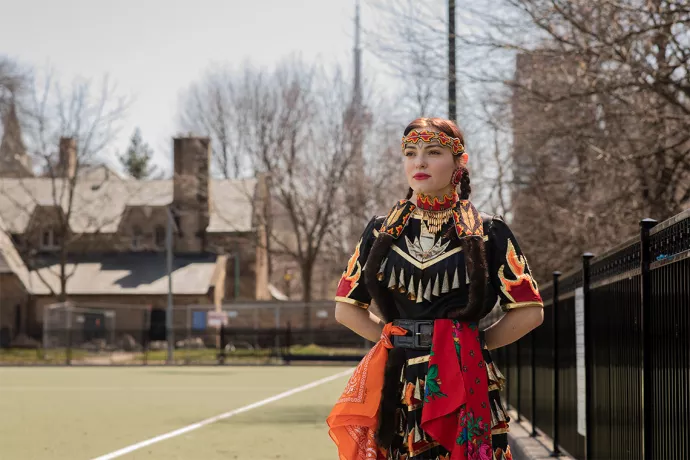
Recognizing National Indigenous History Month
Today marks the start of National Indigenous History Month; National Indigenous Peoples Day will soon follow on 21 June. The time provides an opportunity to honour the diverse cultures and contributions of First Nations, Métis, and Inuit people; to understand the colonial conditions for historical and ongoing inequities; and to affirm a collective commitment to truth, reconciliation and good kinship.
This commitment, as our campus’s Strategic Framework attests, represents one of UTM’s central values. Our campus runs alongside the Missinnihe, the trusting creek: called the Credit River by European colonists who, at the river’s mouth, traded goods on credit with Indigenous peoples, who have cared for these waters from time immemorial. This land falls under the provisions in Treaty 13-A, accepted by Chiefs Chechalk, Quenepenon, Wabukanye and Okamapenesse in 1805, after debate at the Mississaugas’ Council of Fire earlier that year.
UTM retains a connection to this legacy, which we aim to express in an intentional commitment to Mississauga’s place and its people: to build a trust that befits the trusting creek; to acknowledge the living histories that animate the land on which we work; and to strengthen a community based in respect, responsibility, relevance and reciprocity. This community, I hope, will centre perspectives and experiences of the Mississaugas of the Credit First Nation, to whom UTM owes a special gratitude for their friendship.
Our commitment to right relations involves a frank recognition of the trauma created by Canadian settler colonialism, including by the Residential School System, which took more than 150,000 Indigenous children from their families and strove to destroy Indigenous cultures, languages and identities. The effects of this system persist today in pervasive structures of inequality and in the intergenerational trauma that many Indigenous families continue to experience.
The truth entails a responsibility to action. We have a roadmap for change, based on U of T’s response to the Truth and Reconciliation Commission, Answering the Call: Wecheehetowin, which has now entered the fifth year of its entrustment. Thanks to the dedication of tri-campus communities, we’ve made progress—in curriculum, hiring, research and space design—toward honouring our 34 Calls to Action. But we have to do more, both to fulfill our promises for de-colonization and to make good on the trust embedded in this place.
So, I encourage you to mark this month by participating in events at UTM’s Indigenous Centre and U of T’s Office of Indigenous Initiatives; by reviewing our institutional and national commitments to reconciliation; by reading histories published by MCFN and other Indigenous peoples; and by joining U of T’s programs in Indigenous Cultural Competency. But I also encourage you to hold truth and reciprocity as values that matter urgently in every month—as part of what it means to work, learn and live here, on territory of the Wendat, the Seneca and the Mississaugas of the Credit First Nation, next to the trusting creek.
Alexandra Gillespie
Vice-President and Principal
University of Toronto Mississauga
